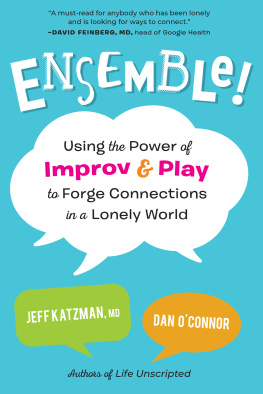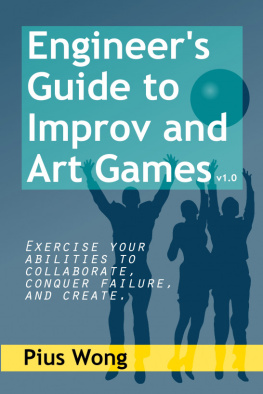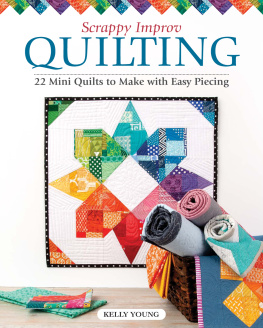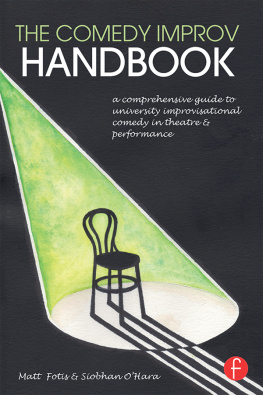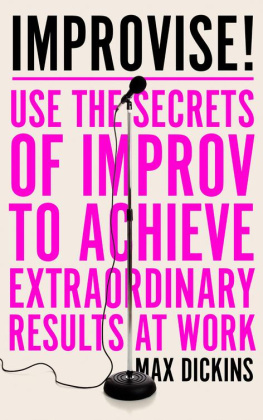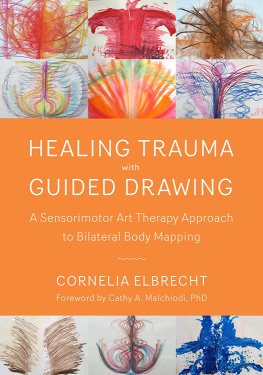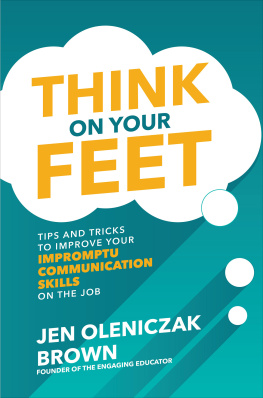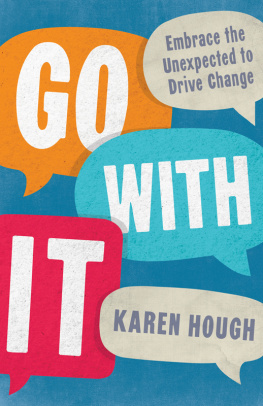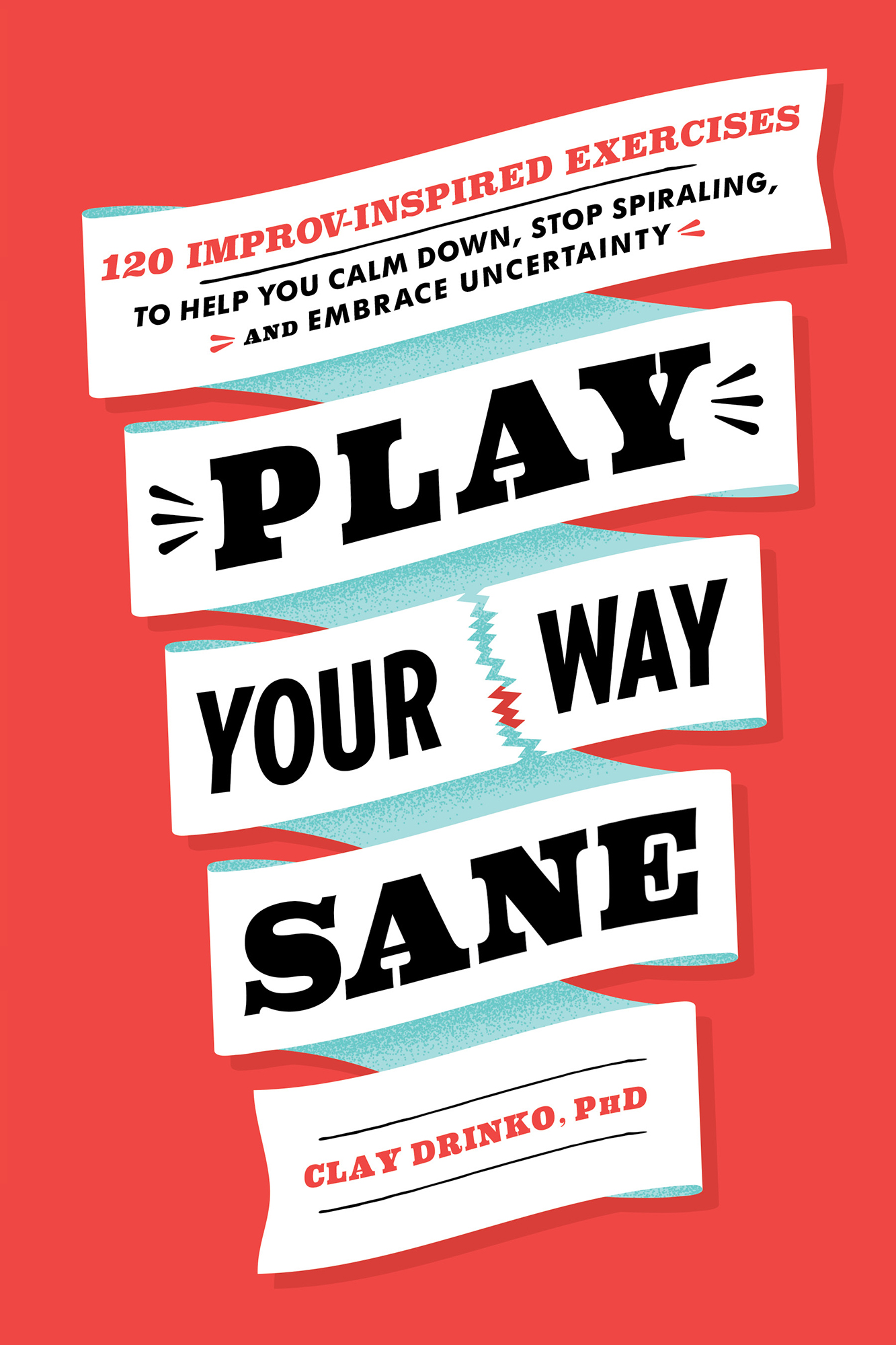Contents
Guide

An Imprint of Simon & Schuster, Inc.
1230 Avenue of the Americas
New York, NY 10020
www.SimonandSchuster.com
Copyright 2021 by Clay Drinko
All rights reserved, including the right to reproduce this book or portions thereof in any form whatsoever. For information, address Simon & Schuster Subsidiary Rights Department, 1230 Avenue of the Americas, New York, NY 10020.
First Tiller Press trade paperback edition January 2021
TILLER PRESS and colophon are trademarks of Simon & Schuster, Inc.
For information about special discounts for bulk purchases, please contact Simon & Schuster Special Sales at 1-866-506-1949 or .
The Simon & Schuster Speakers Bureau can bring authors to your live event. For more information or to book an event, contact the Simon & Schuster Speakers Bureau at 1-866-248-3049 or visit our website at www.simonspeakers.com.
Interior design by Laura Levatino
Cover design by Patrick Sullivan
Author photo by Max Flatow
Library of Congress Cataloging-in-Publication Data
Names: Drinko, Clay, author.
Title: Play your way sane : 120 improv-inspired exercises to help you calm down, stop spiraling, and embrace uncertainty / Clay Drinko, Ph.D.
Description: New York : Tiller Press, 2021. | Includes bibliographical references.
Identifiers: LCCN 2020031258 (print) | LCCN 2020031259 (ebook) | ISBN 9781982169220 (paperback) | ISBN 9781982169237 (ebook)
Subjects: LCSH: Self-control. | Positive psychology. | Self-help techniques.
Classification: LCC BF632 .D675 2021 (print) | LCC BF632 (ebook) | DDC 793dc23
LC record available at https://lccn.loc.gov/2020031258
LC ebook record available at https://lccn.loc.gov/2020031259
ISBN 978-1-9821-6922-0
ISBN 978-1-9821-6923-7 (ebook)
To my mom, Debbie Drinko, for sparking in me the joy of play.
This publication contains the opinions and ideas of its author. It is intended to provide helpful and informative material on the subjects addressed in the publication. It is sold with the understanding that the author and publisher are not engaged in rendering medical, health, or any other kind of personal professional services in the book. The reader should consult his or her medical, health, or other competent professional before adopting any of the suggestions in this book or drawing inferences from it.
The author and publisher specifically disclaim all responsibility for any liability, loss, or risk, personal or otherwise, that is incurred as a consequence, directly or indirectly, of the use and application of any of the contents of this book.
INTRODUCTION
I ve got a lot of garbage to worry about.
Like many people, Im constantly thinking about how I could have said something better, how I could have worked harder or seemed smarter. I spend hours playing out pointless hypotheticals, like what my house will be worth in fifty years if the real estate market appreciates 8 percent annually for the rest of my life. Of course, I plan on moving in less than ten years, and the market is a fickle mistress, so these what-if scenarios probably arent the best use of my time.
In fact, all this garbage that weighs me downthis gray water in my gray matteris a waste of time. It gets in my way. It prevents me from making connections with others, enjoying the moment, and effectively solving problems. It also drives my therapist crazy. I mean, Im charming and all, but if you sat through my tenth hypothetical in a one-hour session, youd be just as fed up as my shrink.
People tell me to just live in the moment. Have you tried meditation? Forget the shoulda, coulda, wouldas.
But if it were that easy, everyone would be chillin all day long. Youd treat the loud chewer next to you on the subway with Buddhist indifference. Youd shrug off your partners nagging. Youd meet your bosss every irrational demand with a calm, yet eager, no problem, maam. After all, why wouldnt you want to restaple five thousand photocopies? Its not like you have better things to do. Its not like shes attacking you personally. I mean, you love thankless and pointless tasks!
This is why we do drugs. Its why we drink. Its why we stare at screens all day. Its why we disengage, why we cant make eye contact anymore. If we were already able to live totally in the moment and let everything roll off our backs, we wouldnt need to numb. We wouldnt need to disengage. You wouldnt have picked up this book, and I wouldnt have written it.
CONFESSIONS OF AN ANXIOUS AUTHOR
Trust me, Im no Zen master myself. Im defensive and angry. Im stubborn and irritated. Im embarrassed and shy. Im selfish and a people pleaser. And worst of all, Im a total hypocrite. After all, shouldnt I, of all people, know better by now?
You see, I literally wrote the book on living in the moment. After improvising and acting for a decade, I went back to school to get my PhD in drama and theatre studies. I researched and wrote about the science of improvisation, about what happens in your brain while improvising thats different than when youre not. That research became the academic book Theatrical Improvisation, Consciousness, and Cognition.
So Id spent half my life improvising. For years, I researched how people live in the moment. Yet I just couldnt walk the walk offstage. During my research, I interviewed one improviser who described stepping onstage as his threshold of nervousnessthat is, all his anxieties, worries, and fears melted away as soon as he crossed that line. My threshold of nervousness, anxiety, fear, anger, and worry was also right next to the stage, but no matter how many people I interviewed, or how much I knew about the science of mindfulness, I just couldnt translate that to my day-to-day life.
When I walk in Times Square, I snap at tourists, Are you walking or shitting your pants? When my boss tells me she needs to speak with me, I assume Im going to be fired and plan accordingly. When I fight with my partner, I shut down completely. I hear everything as a personal attackhow imperfect I am, how Ive failed everyone.
I clearly have quite the imagination. Im imagining tourists plotting against me, bosses counting the days until I walk out with my office supplies in a cardboard box, and loved ones drawing up divorce papers.
These are not rational thoughts! They are not coming from my educated, academic brain. They are coming from somewhere deeper and more sinister: my pesky, irrational internal monologue.
I never had these fears onstage, where I always felt creative, present, hopeful, and engaged. Once I cross that threshold, those nasty thoughts just creep away. I get to play with the other people there, look into their eyes, and trust them. I get to listen and be listened to. That internal monologue gets a much-needed time-out.
But what is it about improv that makes my mind more present, that makes me see and listen instead of fear and worry?
IMPROV IS PRETTY FREAKIN MAGIC
Improv is pretty freakin magic. There, I said it.
I started improvising on a college team over twenty years ago. I cant believe its been that long, but time flies when youre playing make-em-ups for a roomful of drunkards. After Id learned the basic rules of the art, and gotten comfortable performing, something really strange started happeningI stopped remembering our performances.


